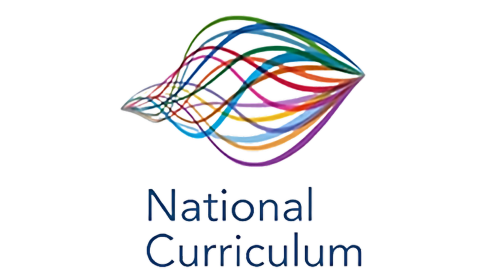
The British National Curriculum (UK Curriculum) provides a structured framework for students in primary and secondary education, divided into Key Stages from early years through to GCSEs. Here’s an overview of the curriculum across major subjects and key stages, including core topics commonly covered in each subject area.
1. Structure of the British National Curriculum
The curriculum is divided into Key Stages (KS) based on age groups:
- Early Years Foundation Stage (EYFS): Ages 3-5
- Key Stage 1 (KS1): Ages 5-7 (Years 1-2)
- Key Stage 2 (KS2): Ages 7-11 (Years 3-6)
- Key Stage 3 (KS3): Ages 11-14 (Years 7-9)
- Key Stage 4 (KS4): Ages 14-16 (Years 10-11) leading to GCSE exams
- Key Stage 5 (KS5): Ages 16-18 (Years 12-13) leading to A-Level exams or equivalent
2. Primary School Curriculum (EYFS, KS1, KS2)
Subjects:
- English (KS1 & KS2)
- Units: Phonics, reading comprehension, writing composition, grammar, vocabulary, and spelling.
- Mathematics (KS1 & KS2)
- Units: Numbers, counting, addition, subtraction, multiplication, division, fractions, measurement, geometry (shapes), and statistics.
- Science (KS1 & KS2)
- Units: Plants, animals, habitats, materials, forces, light, sound, and basic human biology.
- Computing (KS1 & KS2)
- Units: Basic coding, internet safety, digital literacy, and basic algorithms.
- Physical Education (PE) (KS1 & KS2)
- Units: Fundamental movement skills, sports, dance, and fitness.
- History (KS1 & KS2)
- Units: Significant individuals, local history, events beyond living memory, and British history timelines.
- Geography (KS1 & KS2)
- Units: Map skills, UK and world geography, climates, continents, oceans, and environmental studies.
- Art and Design (KS1 & KS2)
- Units: Drawing, painting, sculpture, exploring materials, and learning about famous artists.
- Design and Technology (KS1 & KS2)
- Units: Building structures, simple mechanisms, cooking, and nutrition.
3. Secondary School Curriculum (KS3 and KS4 leading to GCSEs)
Key Subjects and Units:
English (KS3 & KS4)
- Units:
- KS3: Shakespeare plays, modern novels, poetry, creative writing, grammar.
- KS4: Literature analysis (plays, novels, poetry), non-fiction texts, writing for purpose, and GCSE-specific texts.
Mathematics (KS3 & KS4)
- Units:
- KS3: Algebra, geometry, probability, statistics, number theory, ratios, and problem-solving.
- KS4: Advanced algebra, trigonometry, statistics, probability, geometry, sequences, and GCSE exam preparation.
Science (KS3 & KS4)
- Subjects: Combined Science (Biology, Chemistry, Physics) or Triple Science option at GCSE.
- Units:
- Biology: Cell biology, genetics, ecology, human biology.
- Chemistry: Atomic structure, chemical reactions, organic chemistry, periodic table.
- Physics: Energy, forces, waves, electricity, space physics, and GCSE-specific topics.
Computing (KS3 & KS4)
- Units:
- KS3: Basic programming, data handling, algorithms, internet safety.
- KS4 (GCSE Computer Science): Advanced programming, systems architecture, cyber security, data representation, and network fundamentals.
History (KS3 & KS4)
- Units:
- KS3: British history (Tudors, Industrial Revolution), world wars, medieval history, and global empires.
- KS4: Specific GCSE topics (e.g., Nazi Germany, Cold War, Crime and Punishment, and Elizabethan England).
Geography (KS3 & KS4)
- Units:
- KS3: Physical geography (rivers, volcanoes, ecosystems), human geography (urbanization, development).
- KS4: Specific GCSE topics in physical and human geography, case studies, map skills, and environmental issues.
Modern Foreign Languages (KS3 & KS4)
- Languages offered: French, Spanish, German (varies by school).
- Units: Grammar, vocabulary, speaking and listening skills, reading and writing, cultural studies, GCSE exam skills.
Religious Studies (KS3 & KS4)
- Units: World religions, ethics, philosophy, moral issues, and GCSE-specific themes like religion and life, crime and punishment, human rights.
Physical Education (PE) (KS3 & KS4)
- Units: Team sports, fitness training, health and well-being, and GCSE PE options covering anatomy, physiology, and sports psychology.
Art and Design (KS3 & KS4)
- Units: Drawing, painting, digital art, sculpture, GCSE portfolio development, and study of artists and art history.
Design and Technology (KS3 & KS4)
- Units: Materials, design process, electronics, graphic design, product design, food technology, and GCSE coursework.
4. Key Stage 5 (KS5): A-Levels or Equivalent
Students in KS5 specialize in three or four subjects chosen from a range of A-Level offerings, usually in preparation for university studies. Here are some core subjects:
A-Level English Literature
- Units: Literary analysis of novels, poetry, plays; historical context of texts; comparative analysis; and critical essays.
A-Level Mathematics
- Units: Pure mathematics (algebra, calculus, trigonometry), mechanics, statistics, and optional topics like further mathematics.
A-Level Sciences (Biology, Chemistry, Physics)
- Units:
- Biology: Advanced genetics, ecosystems, cell biology, physiology.
- Chemistry: Organic chemistry, kinetics, thermodynamics, analytical chemistry.
- Physics: Quantum physics, mechanics, electricity, waves, and astrophysics.
A-Level History
- Units: Modern European history, American history, thematic studies (e.g., Russian Revolution, Civil Rights in the USA), historical analysis.
A-Level Geography
- Units: Global systems, human-environmental interactions, urbanization, ecosystems, fieldwork, and climate change.
A-Level Psychology
- Units: Cognitive psychology, biological psychology, social influence, developmental psychology, research methods, mental health.
A-Level Economics
- Units: Microeconomics (supply, demand, market structures), macroeconomics (inflation, unemployment), international economics, and policy analysis.
A-Level Business Studies
- Units: Marketing, operations, finance, human resource management, strategic decision-making, and global business.
Other Optional Subjects at KS5
- Art and Design: Fine art, textiles, graphic design.
- Computer Science: Algorithms, programming, data structures.
- Modern Foreign Languages: French, Spanish, German.
- Physical Education (PE): Sports science, anatomy, physiology, sports psychology.
- Philosophy and Ethics: Ethical theories, philosophy of religion, moral philosophy.
Assessment in the British National Curriculum
- Primary and Lower Secondary (KS1-KS3): Regular assessments, standardized tests, and teacher evaluations.
- GCSEs (KS4): External exams in each subject at the end of Year 11.
- A-Levels (KS5): AS exams (if offered) at the end of Year 12 and full A-Level exams at the end of Year 13.







